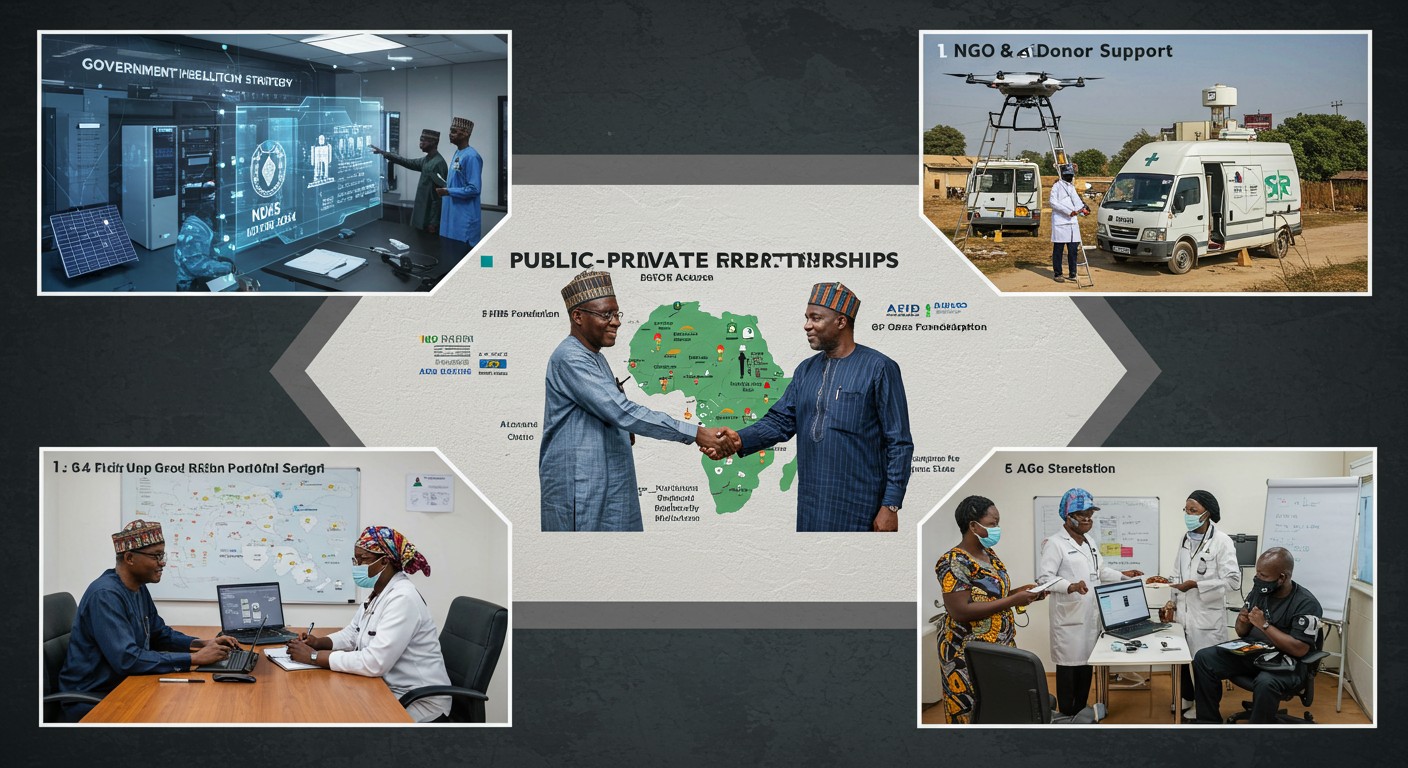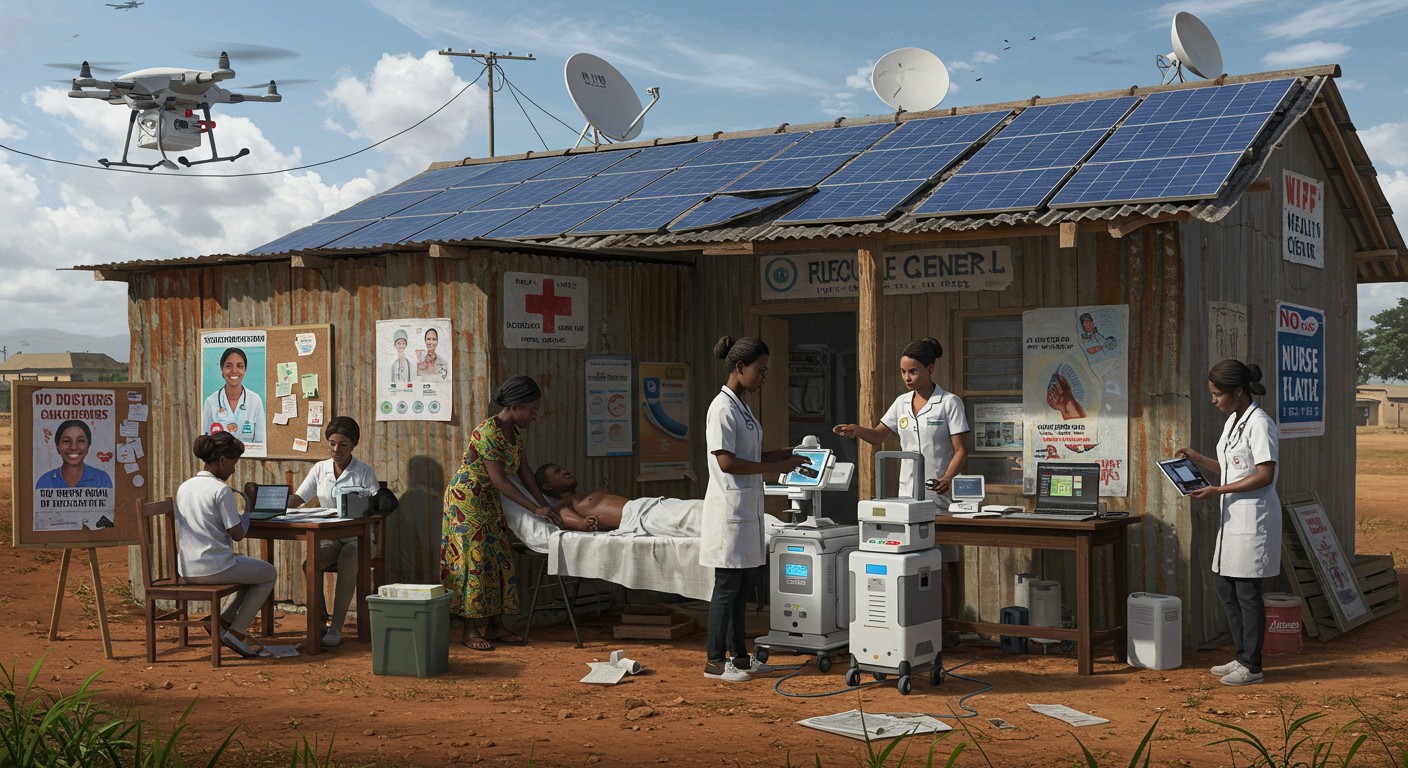From doctors and nurses to lab scientists to midwives, skilled professionals are leaving Africa in large numbers to chase better opportunities abroad.

This trend is known as the “Japa Syndrome,” and it has left many hospitals in Africa understaffed with patients who are vulnerable.
According to the World Health Organization (WHO), the minimum acceptable density is 4.45 health workers per 1,000 people. Yet most sub-Saharan African countries, including Nigeria, fall far below this benchmark.
This gap continues to widen as a result of population growth, inadequate health infrastructure,low investment in healthcare, security concerns in rural areas and of course, the mass migration of trained professionals because of this.

How Japa Syndrome is Affecting African Healthcare?
In Nigeria alone over 1,800 doctors migrated to the UK in 2023, thousands of nurses have relocated to the US, Canada, and Saudi Arabia.
This has led to overcrowded hospitals, increased workload for remaining staff,more burnout and stress and declining quality of patient care.

How Can Technology Help Bridge the Health Workforce Gap?
All hope is not lost. Sonvisage believes that technology holds the key to mitigating japa syndrome. While Health care professionals may never stop relocating, innovative health technologies can greatly cushion the effect of this gap.
Let’s look at the most promising digital health technologies that are being used to close the gap left by Japa and brain drain.
1. Telemedicine: Bringing Doctors to Patients Remotely
Telemedicine allows doctors to consult with patients virtually, reducing the need for in-person visits,especially in rural communities. It helps save time and transport costs, reduces hospital congestion and connects local patients with global specialists.

2. AI-Powered Health Scanners: Digital tools that check for sickness using AI
AI diagnostic tools help reduce the pressure caused by brain drain and the Japa syndrome by stepping in where there are not enough doctors. These smart tools can quickly detect diseases, analyze test results, and guide patients on what steps to take next. This means even in places with very few health workers, people can still get fast and accurate health checks.While they don't replace doctors, they help fill the gap, making sure more people get the care they need despite the shortage of medical professionals.
These tools amplify limited human resources, ensuring patients get care even when specialists are unavailable.

3.Electronic Health Records
Digital health records help reduce the impact of brain drain and Japa syndrome by making the work of the few remaining health workers easier and faster. Instead of wasting time searching for paper files, doctors and nurses can quickly access a patient’s full medical history with just a few clicks. This saves time, reduces stress, and cuts down on errors. By improving efficiency and reducing burnout, digital records help health workers stay focused on what matters most , which is saving lives,even when there are fewer hands on deck.

4. mHealth Solutions: Empowering Care Through Mobile Phones
Mobile health technologies help fight the effects of brain drain and the Japa syndrome by bringing healthcare directly to people’s phones, especially in places where doctors and nurses are few. With mobile apps, SMS services, and health hotlines, patients can get health advice, reminders, follow-up care, and even mental health support without needing to see a doctor in person. This reduces the pressure on the few health workers left and ensures people still receive care, even in remote areas. It empowers communities to take charge of their health, despite the shortage of professionals.

5. Virtual Training: Upskilling Health Workers from Anywhere
With many senior professionals leaving, junior staff need rapid upskilling. Virtual training platforms provide. With online courses, webinars, and virtual simulations, doctors, nurses, and other professionals can learn new skills, and stay updated on best practices without leaving their location. This will go a long way to equip them and strengthen the system from within.

What Policies or Partnerships Are Enabling These Technologies to Scale?
Several African governments have begun integrating tech into healthcare policy. For example:
Nigeria’s National Digital Health Strategy (2020–2024) aims to digitize healthcare across all levels.
Public-private partnerships are scaling innovation especially in Africa and sub-saharan regions.
NGOs and donor-funded projects (like USAID, WHO,Bill & Melinda Gates Foundation) provide grants and infrastructure for healthtech pilots.

However, coordination, funding, and politics will remain critical for long-term impact.
What Are the Challenges of Adopting Technology in Africa’s Fragile Health Systems?
Despite the promise, several barriers exist in the ecosystem of Africa:
Low internet availability in rural areas
Unreliable power supply
Digital illiteracy among primary care workers
Resistance to change from health professionals
Data security and privacy concerns
What is the Future of Healthcare in Africa With or Without Its Health Workers?
Africa’s healthcare future faces this tough question: what happens when our best doctors, nurses, and specialists leave?
The answer does not lie in who stays or who goes. It lies in how we respond. While the continued departure of skilled professionals creates serious gaps, the future of African healthcare can still be rebuilt through innovation, inclusion, and access.

By investing in technology, strengthening digital infrastructure, and deploying smarter health solutions, we can create health systems that serve everyone even in the most remote areas.
The future of African healthcare therefore depends on what we choose to build, digitize, and deploy.


